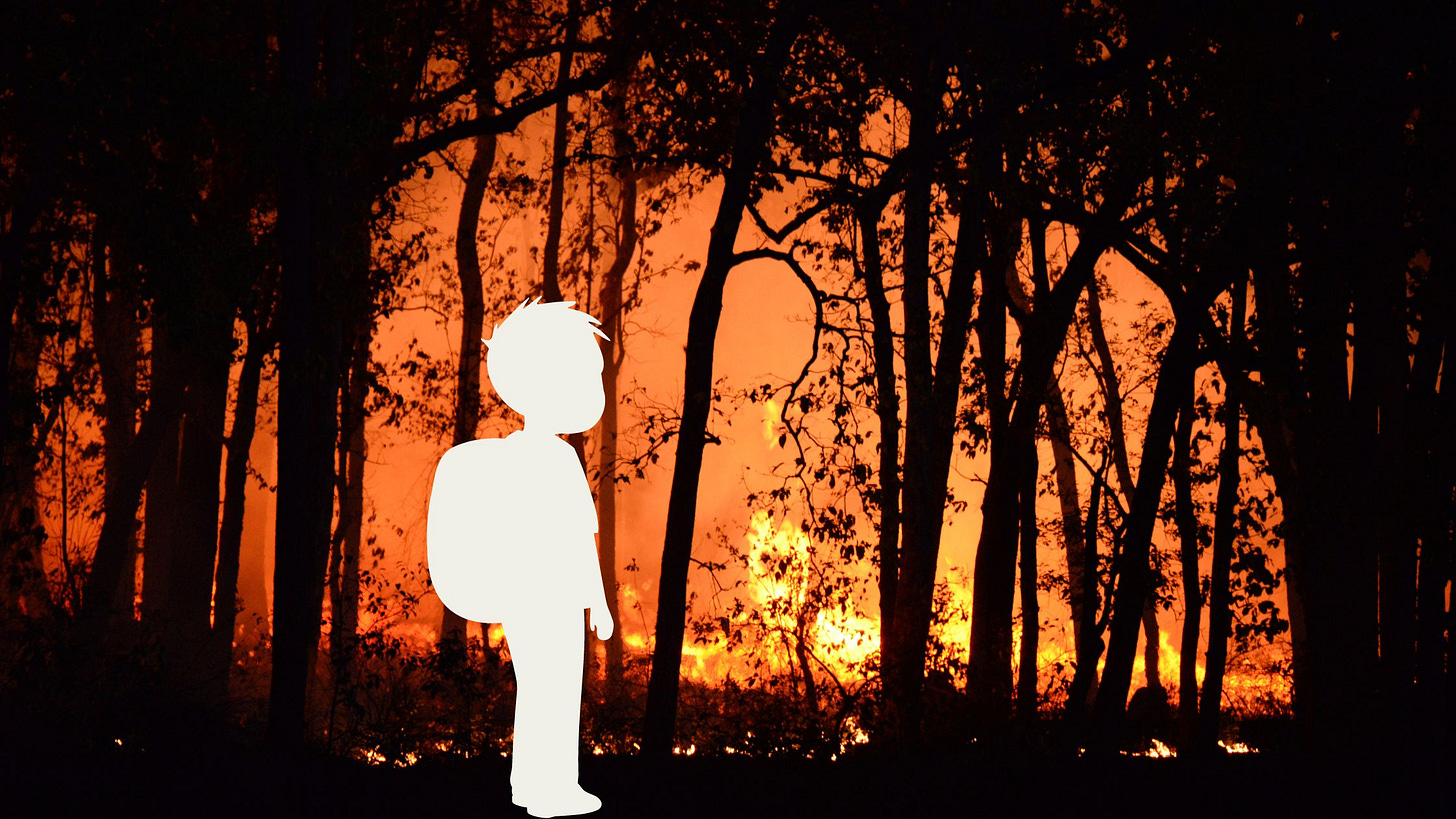Some Back-to-School Reflections
And discovering the year my kid will graduate high school
Last week my sweet kiddo started first grade. While entering big kid public school as a Kindergartener last year was most definitely a milestone, this year surprisingly felt like one, too. Maybe every year does, but this year I realized that he’s no longer the littlest. We no longer drop him off at his classroom door. He just goes inside amongst the one big mass of first through eighth-graders. He’s officially a big kid.
For some reason this big kid milestone prompted me to figure out his high school graduation year. I have no idea why I hadn’t ever thought about it before (probably because it involved math). As such, I found one of those high school graduation calculators and discovered that my sweet now-First Grader will graduate high school in the year 2035.
This realization brought up a whole lot of feelings for me. In one way, it’s the normal parent stuff: “they grow up so fast” or “time is going too fast.” But then on another, thinking of an actual year in the future made me think of all the year-based climate-related predictions out there. One of which is 2029 which, as the fourth season of the Threshold podcast I was listening to this week, noted was when the world was predicted to 1.5 degrees of warming. In case that stat isn’t known to you, it’s the threshold at which we need to keep the world from heating beyond in order to sustain some level of human livability on the planet. It’s the number that all the countries who signed the Paris Climate Agreement agreed to as a threshold that they will do everything in their power to keep to. In fact the entire Season Four of Threshold, “Time to 1.5,” is about this threshold.
So when I realized my child will be graduating high school and theoretically going out into the world as an adult, if we don’t curb our carbon emissions, we’ll be six years beyond 1.5-degrees of warming. It made me wonder if that was also the threshold of “apocalypse.” The major carbon-emitting countries (the U.S. included) have not been doing enough to meet the goal they agreed to.
Does this mean that my child could very well be exiting high school in an apocalypse? At the same time, who’s to say we aren’t already within the apocalypse where we are now when we haven’t even reached 1.5-degrees? This summer in the string of climate disasters feels as apocalyptic as ever. And we’ve seen how the most vulnerable, still, are the ones most at risk.
I thought a lot about this as I listened to Two Degrees of Alan Gratz this week, a middle grade novel detailing the harrowing story of four thirteen-year-olds going through three separate climate-related disasters at the same time. I did not intentionally do this to myself going down a climate disaster rabbit hole at once. Two Degrees was recommended by someone and just happened to come up to borrow from the library. So here I was, sending my kid off to First Grade, hearing about three middle schoolers experiencing climate disaster, and wondering what the future for my kid was going to look like when the present is already harrowing for so many kids.
When my husband saw what I was reading, he was like, “no wonder you’re so anxious all the time.” And he’s right. I am a worrier. And this kind of stuff does kind of feed the fire, so to speak. But it also keeps me focused.
In fact, the fact that the story was written for thirteen-year-olds about thirteen-year-olds was enlightening. In the afterword, Gratz explains that this, as someone from an older generation, was his way of taking climate action. It was a way to amplify the message of young people leading the climate fight.
It’s true that young people are on the front lines of the climate justice movement. And they’re starting to make waves in many ways including the courts. For example, earlier last month, youth in Montana won a suit against the State of Montana to protect their “right to a healthful environment.” And that’s just the first of hopefully many lawsuits filed by Our Children’s Trust on behalf of youth around the country.
The question is as the grown-ups, the parents, the caregivers, the elders, what is our role in this fight? What is our role to stave off or lessen the effects of the apocalypse? What is our role to ensure that we slow this rise in temperatures so that my kid–and many others–don’t graduate into a vastly different reality?
What the lessons in Two Degrees teaches middle schoolers is probably the same lesson for adults. I don’t know what you can do necessarily. But you have to do something, so figure it out. And like Gratz who notes the book as his role in the fight to amplify young people’s voices, this whole journey is part of my role in the fight to at least validate the climate anxiety but not let that paralyze you from taking action.
Of course, my own climate anxiety isn’t going to go away. And now I’ll probably always link my son’s graduation year with all the climate threshold years that come up in reports and any kind of reporting about the crisis. But what can I do other than to keep on keeping on with the fight in whatever capacity I can.



